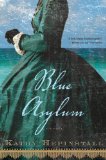Summary | Excerpt | Reading Guide | Reviews | Read-Alikes | Genres & Themes | Author Bio

Both convincing in its portrayal of the collective madness America went through after the carnage of the Civil War, and otherworldly in its contemplation of obsessive grief and longing, Gob's Grief is at once an announcement of a major talent, and an extraordinary achievement in literary art.
The literary debut of an electrifying talent that gives the historical novel an exhilarating dose of originality, style, and visionary energy.
Gob's Grief recounts the lives of Gob and Tomo Woodhull, fictional twin sons of the real Victoria Woodhull, the nineteenth-century proto-feminist. In August of 1863, Tomo, who is eleven years old, runs off to the Civil War and dies in his first battle. Gob grows up in a profound state of grief, and by the time that he's an adult studying to be a doctor in New York City, he has begun to make real a dream to build a machine that might bring Tomo - indeed, all the war dead - back to life.
As Gob's obsessions deepen, we are taken from the battlefields at Chickamauga Creek to the society balls of New York, from innocent childhoods in Homer, Ohio, to the building of the Brooklyn Bridge; and as the machine grows, so does the amazing cast of real and imagined characters: Walt Whitman, ministering lovingly to the Civil War wounded; Mrs. Woodhull and her sister Tennessee, doing business on Wall Street and riding churning tides of scandal; Gob's friend Will Fie, a war veteran who builds a house from glass images of suffering and death; Maci Trufant, Victoria Woodhull's protege and Gob's great love; and even unnatural Pickie Beecher, a child who seems to float sinisterly between the living and the dead. These disparate lives come together in support of Gob's endeavor, but the abolition of death and the success of his machine may come at a price more hideous and awful than any of them can know.
Both convincing in its portrayal of the collective madness America went through after the carnage of the Civil War, and otherworldly in its contemplation of obsessive grief and longing, Gob's Grief is at once an announcement of a major talent, and an extraordinary achievement in literary art.

If you liked Gob's Grief, try these:

by Kathy Hepinstall
Published 2013
In the midst of the American Civil War, a southern plantation owner's wife is arrested by her husband and declared insane for interfering with his slaves. She is sent to an island mental asylum to come to terms with her wrongdoing, but instead finds love and escape with a war-haunted Confederate soldier.

by E.L. Doctorow
Published 2006
Stunningly renders the countless lives swept up in the violence of a country at war with itself. The "Great March" in E. L. Doctorow's hands becomes something more – a floating world, a nomadic consciousness, and an unforgettable reading experience with awesome relevance to our own times.